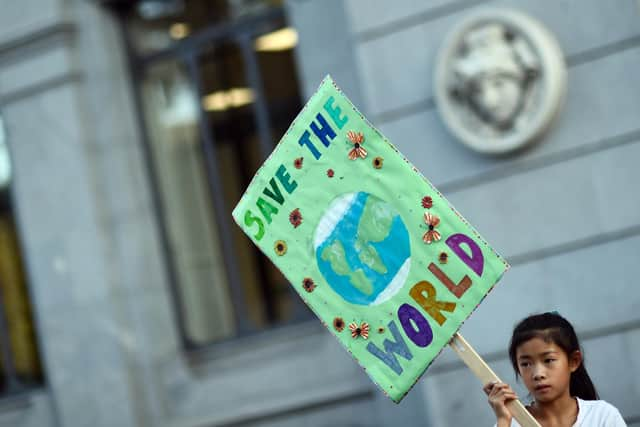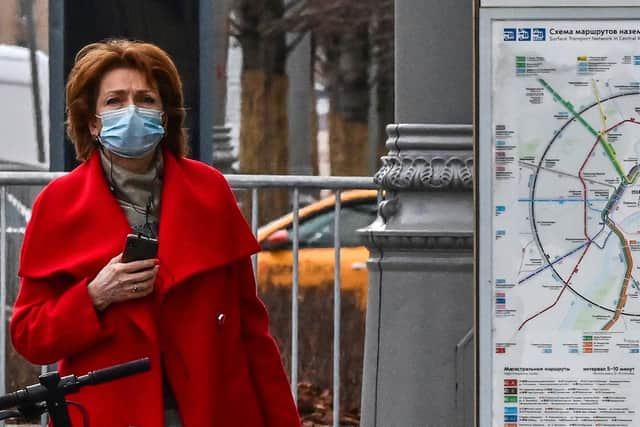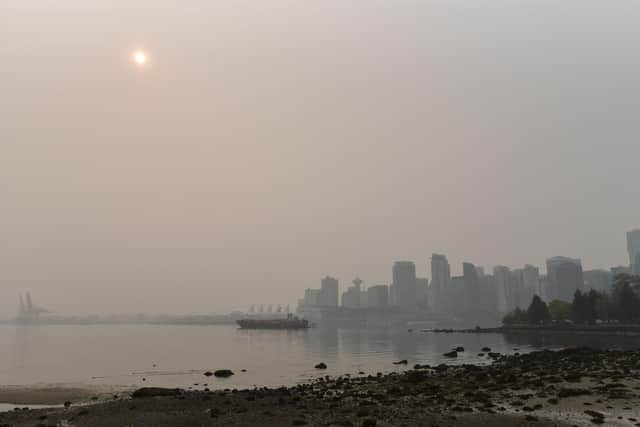COP26: Climate change emergency demands the same urgency of action as the Covid pandemic but it's just not happening – Kirsty Duncan MP
While there have been climate successes over the last three decades – general agreement on the science of climate change, increased diplomacy, the Kyoto Protocol, the Paris Agreement, and government pledges to slow climate change – we have collectively failed.
Civil society is growing tired of broken promises, and the UN Secretary-General is warning about the risk of failure at the most important UN climate conference since Paris, COP26 in Glasgow.
Advertisement
Hide AdAdvertisement
Hide AdI have previously served as the minister of science for Canada, a member of parliament, and as a lead author for North America on the Intergovernmental Panel on Climate Change. I fight for science, evidence-based policy, and urgent action on climate change. I am a member of the Scotia Group which is dedicated to addressing the climate emergency and supporting the success of COP26.
The world is about to turn its attention to Scotland, a country rich in scientific culture that gave the world chloroform anaesthetic, penicillin, the telephone, and that is now generating 97 per cent of its electricity demand from renewables. It is also a place whose people made me feel so welcome when I was a graduate student at the University of Edinburgh.
It is time to acknowledge that we are living in a climate emergency with record heat, devastating storms, wildfires, and worsening droughts and floods. It is time to act: at COP26, we need a clear and decisive commitment to net-zero by 2050.
Climate change is intensifying, rapid and widespread, and countries’ current pledges are not ambitious enough and will not be enacted quickly enough to limit temperature rise to 1.5C or even 2.0C. Rather, they could lead to a catastrophic 2.7C warming. We must therefore urgently change course and increase our ambition.


The unprecedented Covid-19 pandemic – a health, economic, social, and human rights crisis that has touched all our lives – underscores what an actual global emergency is and how quickly developed countries could respond on a massive scale.
Governments largely listened to the science and put in place plans to protect the health and safety of their people. They generally saw no conflict between protecting human health and protecting the economy.
Government ministers and the civil service had to find new ways to work and to deliver results. The overarching priority was the pandemic. In some cases, departments and political staff reorganised, and governments learned to move at a quicker speed. There was also an early understanding that we were all in the pandemic together and that none of us would be protected until we were all protected.
Tragically, we have yet to deliver on that understanding with vaccines for lower-income countries, and we risk repeating the disaster of the 1990s when Africa had to wait years for life-saving antiretroviral treatment for HIV.


Advertisement
Hide AdAdvertisement
Hide AdIn Canada, people increasingly understood that the only way through the pandemic was for each of us to do our part – where we lived, where we worked, where we worshipped. We knew that, by doing our part – from rolling up our sleeves, to physical distancing, to wearing a mask, to following public health orders – we could protect our loved ones and the most vulnerable among us.
In short, Covid-19 underscores what a global emergency looks like, and the urgency, ambition and action required – not just by government and industry, but also by communities and all of us.
So, why have we not been viewing the climate crisis through the same lens?
Climate scientists have been warning about the dangers of global warming for three decades. Yet, only in the last few years have international and national leaders begun to label climate change an existential threat.


It is time to act on the science and to create incentives for investments. Governments must commit to laws and policies to limit global temperature rise to 1.5C. We must cut global emissions by 45 per cent by 2030 from 2010 levels and achieve net-zero emissions by 2050.
We are at T-minus nine years, and together, we are nowhere near the level of ambition needed.
All countries must step up to fight the climate emergency and prioritise climate action: G20 countries, who are responsible for 80 per cent of global emissions, as well as developed and emerging economies.
We must stop building new coal power plants. We must phase out coal, stop financing coal and fund a just energy transition.
Advertisement
Hide AdAdvertisement
Hide AdDeveloping countries are already facing climate adaptation costs of $70 billion, which could more than quadruple by the end of this decade.
Developed countries must increase individual financial pledges, and at a minimum, deliver on their collective commitment of $100 billion a year to the developing world for both adaptation and mitigation. At the same time, all parties must work toward a post-2025 finance process.
The collective inability, inaction, and lack of accountability we have seen in the past cannot continue. After 25 years of talking in circles, it is time that every leader arrives at COP26 with the mindset that we are facing a climate emergency that requires the same ambition and urgent action that countries around the world have been mounting to fight the pandemic.
People and the planet are paying the price, and the costs will only increase if we delay again. COP26 leaders must unite to deliver a commitment to net-zero 2050.
Kirsty Duncan is the Liberal MP for Etobicoke North, Ontario, Canada, and a member of the Scotia Group
A message from the Editor:
Thank you for reading this article. We're more reliant on your support than ever as the shift in consumer habits brought about by coronavirus impacts our advertisers.
If you haven't already, please consider supporting our trusted, fact-checked journalism by taking out a digital subscription.
Comments
Want to join the conversation? Please or to comment on this article.
